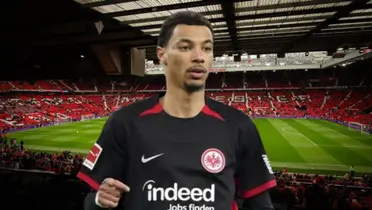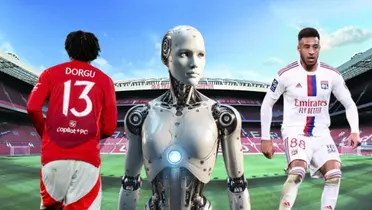Why is continuous training crucial for coaches in modern football?
The continuous training of coaches: Key to success in modern football

In the fast-paced world of football, where innovation and adaptation are the norm, the continuous training of coaches emerges as a fundamental pillar to achieve success. Knowledge acquired in the past is no longer enough; the constant evolution of the sport demands a permanent update of skills and strategies.
We, as a media outlet specializing in English football, have witnessed how technology has revolutionized the way football is trained and played. Coaches who embrace these tools and commit to their continuous training are the ones who make a difference on the field.

Continuous training: An imperative in elite football
Modern football is characterized by its dynamism and complexity. New tactics, strategies, and trends are constantly emerging, driven by advances in science and technology. In this context, continuous training becomes an imperative for coaches who aspire to stay at the forefront.
A coach who refuses to update their knowledge runs the risk of falling behind and seeing their methods become obsolete. Continuous training not only involves acquiring new knowledge but also developing skills to analyze the game, make strategic decisions, and manage high-performance teams.

The impact of technology on coach training
Technology has transformed the way coach training is conceived and delivered. Digital tools offer access to a wealth of information and resources, facilitating learning and knowledge updating.
Online platforms, data analysis software, and virtual simulators are just a few examples of how technology is revolutionizing coach training. These tools allow coaches to analyze their teams' performance, identify areas for improvement, and design personalized training sessions.

Strategies for effective continuous training
Continuous training is not limited to attending courses and workshops. There are several strategies that coaches can implement to stay up-to-date and improve their skills.
- Participate in congresses and conferences: These events are an excellent opportunity to learn about the latest football trends and network with other professionals.
- Read specialized articles and books: Football literature offers a wealth of valuable information on tactics, strategies, and team management.
- Use online platforms and digital resources: The internet provides coaches with a vast amount of information and learning tools.
The future of training in football: Where are we going?
The future of coach training looks promising. Artificial intelligence, virtual reality, and other emerging technologies have the potential to transform the way football is learned and taught.
In the future, coach training will be more personalized and tailored to the individual needs of each professional. Artificial intelligence will allow data analysis and offer personalized recommendations, while virtual reality will create immersive environments to practice strategies and make real-time decisions.
In the increasingly competitive football of the 21st century, the continuous training of coaches has become a differentiating factor. Coaches who invest in their professional development are better prepared to face the challenges of modern football and lead their teams to victory.
Technology plays a fundamental role in this process, as it offers tools and resources that facilitate learning and knowledge updating. Those coaches who embrace technology and continuous training are the ones destined to make a difference in the world of football.
What you should know about continuous training in modern football:
- Continuous training is essential for success in modern football.
- Technology has revolutionized coach training.
- There are various strategies to stay updated and improve skills.
- The future of training in football is promising.
- Personalized training will be key in the future.
More news

The Numbers Don't Lie: Casemiro's Dominance Returns
31/03/2025

United's Dream Pairing: The Duo Fans Are Eager to See
31/03/2025

Hojlund's Fate: Will He Stay or Leave Man United?
31/03/2025

Højlund's Plummeting Value: A Cause for Concern at Man United
31/03/2025

Giggs' Misjudgement: Depay's Free-Kick Hopes Fall Flat
31/03/2025

Man United's Summer Clearout: Players on the Chopping Block
31/03/2025

Financial Divide: Man United's Value Dwarfs Olympique Lyon's Squad Cost
30/03/2025

Onana Exit Rumors Swirl: How the Goalkeeper Is Responding
30/03/2025

Eriksen breaks the silence about the rumors of not renewing
30/03/2025

World-Class Player Available: Romano Reveals Transfer Bombshell
30/03/2025

Ugarte's Premier League Insight: Key Differences From Ligue 1 Revealed
30/03/2025

Garnacho Outshines Salah and Haaland: A Stunning Statistical Triumph
29/03/2025

Ekitike's Staggering Stats: Why Man United Are Keen
29/03/2025

Beyond Legends: The United Player Who Rewrote Investment History
29/03/2025

Manchester's Goalkeeping Giants: Who Reigns Supreme?
29/03/2025

Fernandes' Fortune: Unveiling the Price Tag of United's Captain
29/03/2025

The Manchester United jewel that was rumoured for Barcelona ended up in an exotic league
29/03/2025

Father's Faith Pays Off: 100 Pound Bet on Son's United Debut
29/03/2025



